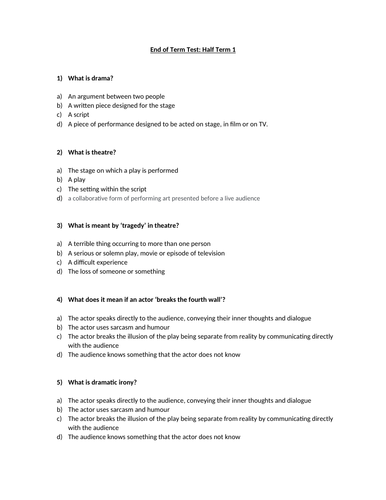English & Drama, Media & Pastoral Shop
I provide resources mainly for English (IGCSE and GCSE content), but also post useful Drama resources. There are also brand new English-with-Media resources to choose from, and many materials such as assemblies and certificates that could prove useful to Head of Years. All resources are differentiated appropriately and labelled with key year groups.





















